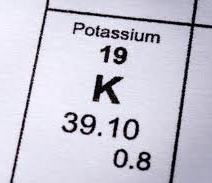
 There are few medical conditions that people fear more than a stroke.??We know that blood pressure control and lowering cholesterol levels reduces stroke risk.??Now, thanks to a huge analysis from Italy published in the Journal of the American College of Cardiology, we know that higher dietary consumption of potassium is associated with lower rates of stroke and could also reduce the risk of coronary heart disease and total cardiovascular disease, too.??What is even more remarkable is that the results apply to all parts of society and not just to specific “at-risk” subgroups.
There are few medical conditions that people fear more than a stroke.??We know that blood pressure control and lowering cholesterol levels reduces stroke risk.??Now, thanks to a huge analysis from Italy published in the Journal of the American College of Cardiology, we know that higher dietary consumption of potassium is associated with lower rates of stroke and could also reduce the risk of coronary heart disease and total cardiovascular disease, too.??What is even more remarkable is that the results apply to all parts of society and not just to specific “at-risk” subgroups.
Most doctors aren’t even aware of how important it is to eat potassium-rich foods.??And what are these foods that have potassium???Surprise: It’s fruits and vegetables like bananas, tomatoes, oranges, apricots, most legumes, spinach, winter squash, avocado, kiwi, and cantaloupe.??Actually, almost all fruits and veggies have moderate to high potassium content.
The researchers looked a number of well-done studies that included 247, 510 participants over age 30 and found that those patients with the higher potassium intake reduced their stroke risk by 21 percent.??The Italian doctors say the protective effect of potassium against stroke is in part due to its blood pressure lowering effects and also due to other properties of the potassium mineral, such as the inhibition of free radical formation.
I’ve written before about the DASH diet, which also found that reduction of sodium and addition of fruits and vegetables to the diet is an effective way to control blood pressure.??The DASH diet is high in potassium.
Think about it: Did you have??five servings of??fruits and vegetables today???Numerous studies have shown their life-prolonging benefits.??This new study just adds to what we already know.??I challenge all readers to keep a diet count and make sure you are eating??five fruit and vegetable servings a day — every day — to help reduce your risk of stroke, cancer, and heart attack.
No comments:
Post a Comment